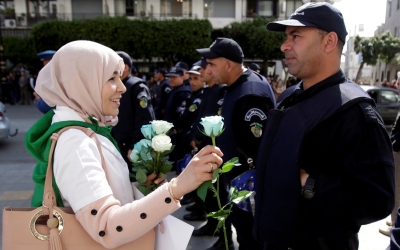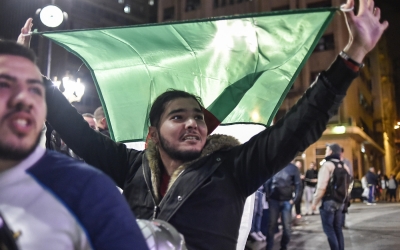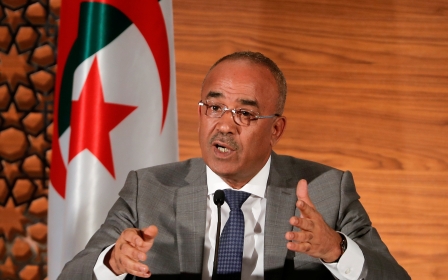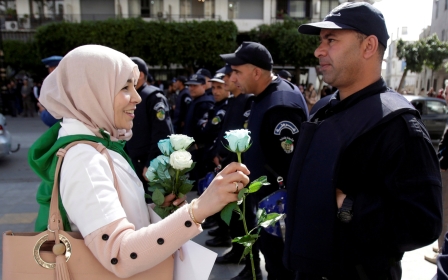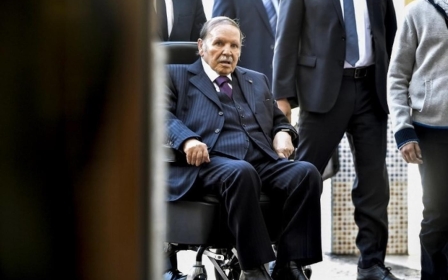Algerian ruling party figure says Bouteflika is 'history' amid new protests
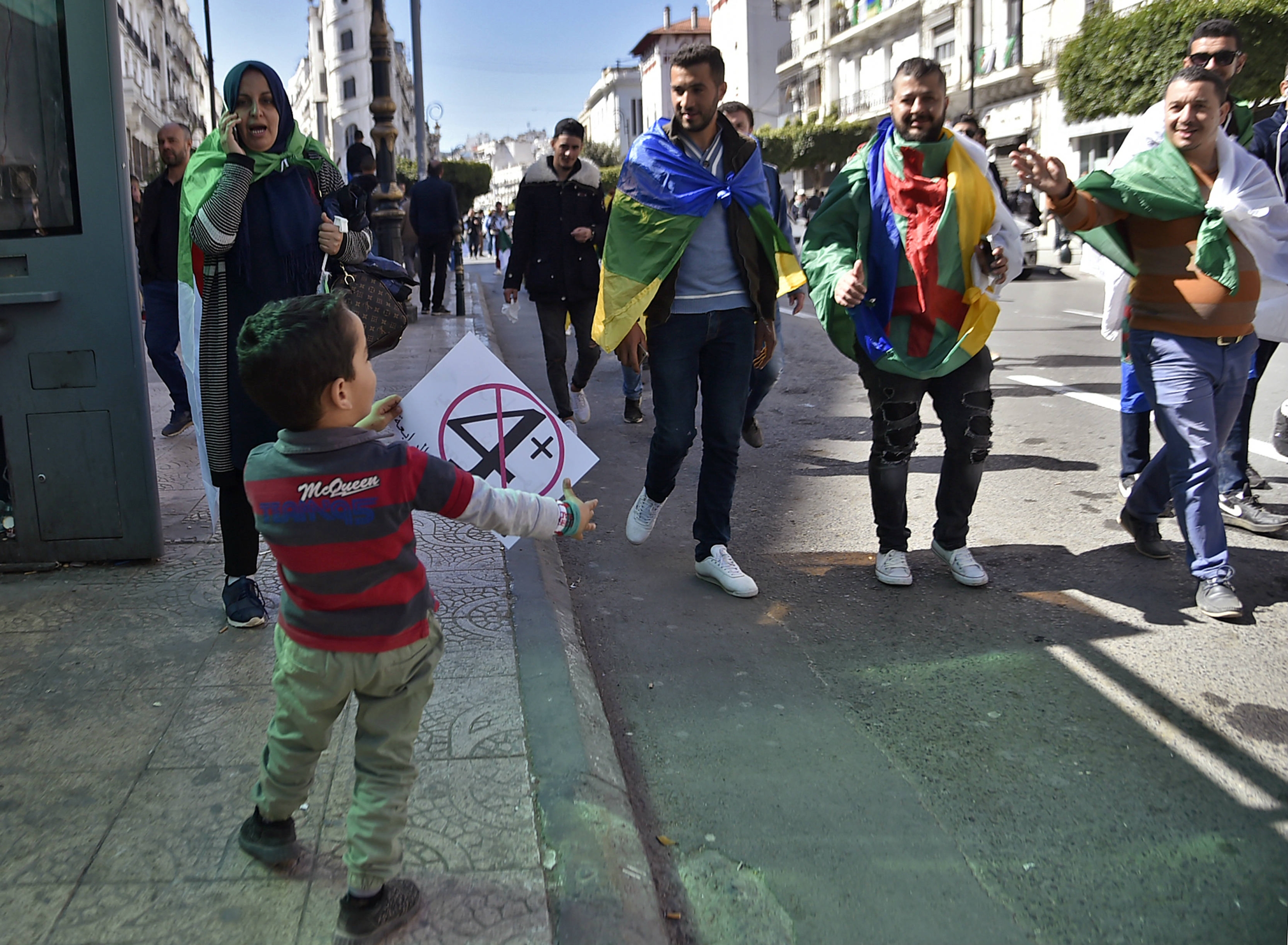
Algeria's ruling FLN party showed further signs of turning its back on Abdelaziz Bouteflika as new protests against him began on Friday, with one senior party figure saying in a television interview overnight the long-serving president was "history now".
Earlier this week, Bouteflika reversed a decision to stand for a fifth term after mass protests against his rule, but stopped short of stepping down and said he would stay on until a new constitution is adopted.
He has been losing allies in recent days since returning from medical treatment in Switzerland, the Reuters news agency reported.
The remarks by Hocine Kheldoun to Ennahar television late on Thursday were another major setback for Bouteflika, who hoped to pacify Algerians by promising to take steps to change the political landscape dominated by a ruling elite for decades.
Kheldoun, a former spokesman for the ruling party, became one of the most senior FLN officials to break with Bouteflika publicly, saying the party had to look forwards and support the aims of demonstrators.
New MEE newsletter: Jerusalem Dispatch
Sign up to get the latest insights and analysis on Israel-Palestine, alongside Turkey Unpacked and other MEE newsletters
'Take your suitcase and go back to France'
Tens of thousands of Algerians have staged peaceful protests for weeks, demanding a new era with younger leaders who would offer greater social freedoms and prosperity.
Friday's protests are the first since the president's surprise announcement that he would not seek re-election.
Middle East Eye's correspondent in Algiers reported thousands of protesters had gathered in the centre of the capital to keep the pressure on Bouteflika to stand down.
Unlike previous Fridays, when protests usually peak in the early evening, this time crowds began forming earlier.
Many demonstrators had gathered in People La Grande Poste and Place Audin where street vendors could be seen selling Algerian, Amazigh and Palestinian flags.
Several of the flags could be seen draped on balconies around the area.
Police had installed roadblocks and attempted to shut down access from the suburbs to the centre but that had not stopped the large numbers attending.
The atmosphere was described as peaceful, with protesters making a u-turn each time they were blocked by police.
"There are a lot of families and kids, and a peaceful atmosphere with songs, derboukas (drums) and flags," said MEE's correspondent.
Fresh slogans targeted Ramtane Lamamra, the newly-appointed deputy prime minister, stating: "Take your suitcase and go back to France".
Other signs read: "No to the rape of the Constitution" and "No country for old men," while a new slogan "the people want to take down the system," could be heard.
MEE's correspondent said Djamila Bouhired, a heroine from Algeria's 1954-1962 war of independence from France, had joined the protesters at La Grande Poste.
'Game over'
Bouteflika, 82, has been in office for 20 years but has rarely been seen in public since suffering a stroke in 2013. Protesters say he is no longer in a fit state to rule.
A former minister who is familiar with Bouteflika's inner circle told Reuters that the president could not survive given the pressure building against him.
“Game over. Bouteflika has no choice but to quit now," the ex-minister said on condition of anonymity.
Many Algerians say that the ailing president and other veterans of the independence war should hand over power to young technocrats who can focus on unemployment, poor services and stamping out corruption.
The military, which has traditionally played a behind-the-scenes power broker role, has distanced itself from Bouteflika and stayed in its barracks throughout the crisis. It is expected to retain influence under all scenarios.
Algeria was relatively untouched when the 2011 "Arab Spring" uprisings swept away veteran autocrats in the Arab world.
Bouteflika and his allies, effective manipulators of the opposition, managed to avoid major unrest by spending oil money on the population, handing out low interest loans and housing.
The president was credited with ending a civil war against armed groups in which tens of thousands of people were killed in the 1990s, and many Algerians long accepted heavy-handed rule as the price of stability.
But the public has lost patience with deteriorating economic conditions and the ruling party's failure to make the transition to a new generation despite the president's failing health.
Middle East Eye delivers independent and unrivalled coverage and analysis of the Middle East, North Africa and beyond. To learn more about republishing this content and the associated fees, please fill out this form. More about MEE can be found here.


